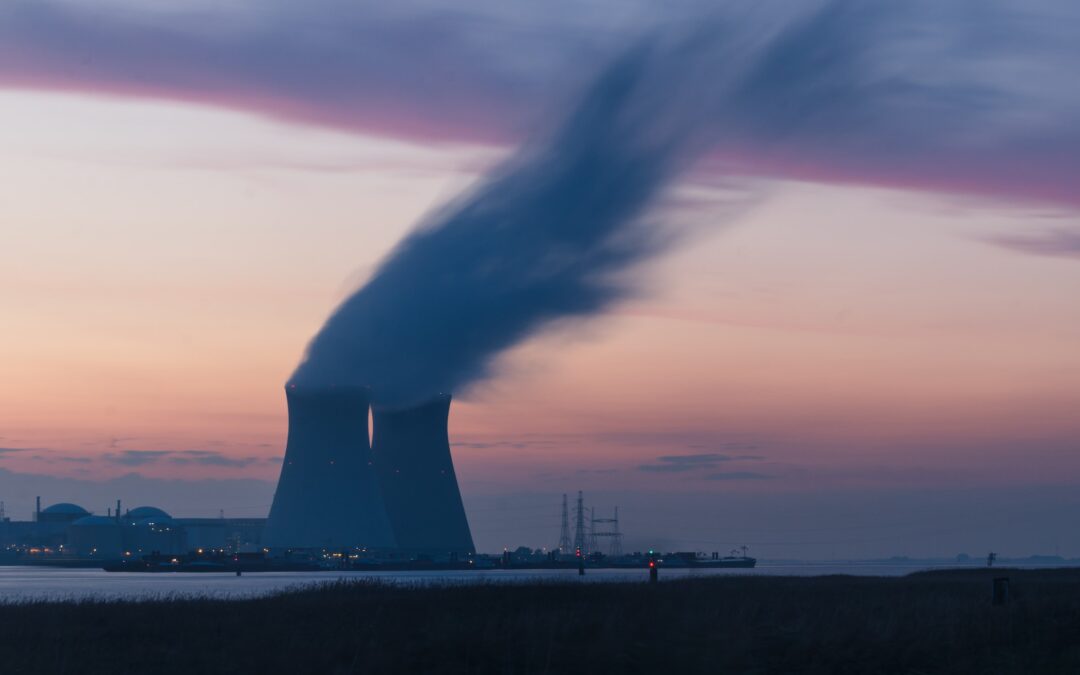Poland has signed an outline agreement with South Korea to develop a nuclear power station. The decision comes just days after the Polish government chose the United States as its partner to develop Poland’s first nuclear plant. Both South Korea and France had hoped to win that contract.
A letter of intent, which was signed in Seoul yesterday, will see three firms – ZE PAK, owned by one of Poland’s richest men, Zygmunt Solorz-Żak; Polish state energy giant PGE; and Korea Hydro & Nuclear Power (KHNP) – cooperate on the project with government backing.
Though Poland’s state assets minister, Jacek Sasin, and South Korea’s trade, industry and energy minister, Lee Chang-yang, also signed the agreement, the project will be separate from the Polish government’s own plans to develop two nuclear plants.
📸#WobiektywieMAP
Wicepremier @SasinJacek w imieniu polskiego rządu podpisał dokument potwierdzający zawarcie strategicznej współpracy polsko-koreańskiej w zakresie rozwoju energetyki jądrowej. pic.twitter.com/653Sy3LhAc— Ministerstwo Aktywów Państwowych 🇵🇱 (@MAPGOVPL) October 31, 2022
The power station would be constructed in place of ZE PAK’s lignite (brown coal) plants in the central Polish village of Pątnów and will “provide Polish households with cheap and clean energy at a stable price”, say the firms, who now intend to prepare a preliminary development plan by the end of this year.
“The Pątnów location seems ideal for a nuclear project,” said Solorz. Last year, he signed an agreement with Michał Sołowow, Poland’s richest man, to develop a nuclear plant at the site.
“We have the necessary infrastructure, experience and passion,” added Solorz. “We are a company in the process of energy transformation, gradually moving away from lignite-based energy production and developing zero-emissions sources.”
Business Insider Polska reports that it is possible the Pątnów plant could be up and running by the start of the 2030s, meaning it may precede the planned 2033 launch date for the government’s first nuclear power station.
It also notes that the model for its development will be different from the government-led plans, with the firms involved taking the lead and shouldering the financial burden.
“We need sources of cheap and stable energy in Poland,” said Sasin, who also serves as deputy prime minister. “Nuclear energy is indispensable in Polish conditions, especially in the current geopolitical situation.”
Sasin said that the government therefore welcomes ZE PAK, PGE and KHNP’s cooperation, which will also “further strengthen relations between Poland and South Korea”. Warsaw recently agreed the large-scale purchase of military equipment from South Korea in what is the Asian state’s largest ever arms export deal.
Speaking to Polskie Radio, Sasin noted that, as well as the US-built power station and the South Korean one, “there are plans to build a third [nuclear] power plant”.
That means that “France is still in the game” to partner in the development of the third project, notes the Rzeczpospolita daily. It reports inside sources as saying that some in the Polish prime minister’s circle are pushing for France’s EDF to win that contract.
Lee also welcomed the new agreement, noting that it is South Korea’s first export of nuclear power technology for 13 years. He added that Seoul was hoping to supplement the project by also expanding and deepening cooperation “in…various areas, such as the defence industry, batteries, hydrogen and electric vehicles”.
Poland currently produces around 70% of its electricity from coal, by far the highest proportion in the European Union. The current government, though long supportive of the coal sector, has adopted plans to phase out the fossil fuel, replacing it with renewables and nuclear.
Those plans have been lent extra urgency by events this year, with the energy crisis prompted by Russia’s war in Ukraine reinforcing the need for stable, reliable energy sources that are less dependent on supplies from other countries.
Main photo credit: Frédéric Paulussen / Unsplash

Alicja Ptak is deputy editor-in-chief of Notes from Poland and a multimedia journalist. She has written for Clean Energy Wire and The Times, and she hosts her own podcast, The Warsaw Wire, on Poland’s economy and energy sector. She previously worked for Reuters.




















